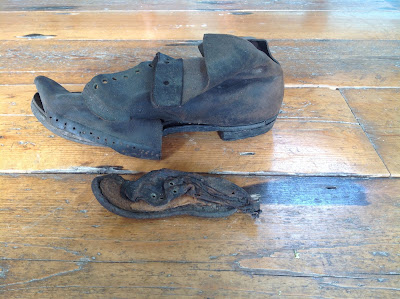The value of local history
Our understanding of people and how they viewed the world
around them involves a focus on our place over time - the landscape, buildings,
roads, farms, customs, traditions, placenames, and much, much more. These things
are evolving and their meanings change. Does your local holy well have a
cursing stone like that in Kilmoon West, Co. Clare, or did your people ever
wear a St. Bridget's cross on St. Bridget's Day as they used to in Capard, Co.
Laois? Some things that used to be important are no longer so, but the study of
them helps to convey a sense of our past.
As well as the physical things on or shaped by the landscape, we can use the words of people as a way to understand and study their motivations, thoughts, and feelings. With some of the sources now available we can hear the accent and dialect, try to decipher the meaning of local words, and consider the 'other' in local history, those who are sometimes not represented in the written record - women, children, the poor.
The practice of local history involves locating all of these sources and using them to discover more about our own area, answering questions like, 'who lived here?' 'What type of house did they live in?' 'What did they eat?' 'How did they travel?' and much, much more.
The idea of place is an important one in the study of local history. What story can your place tell?
The Certificate in Local History is now open for applications. For further information contact Clare at irishworkhousecentrecourse@gmail.com



Comments
Post a Comment